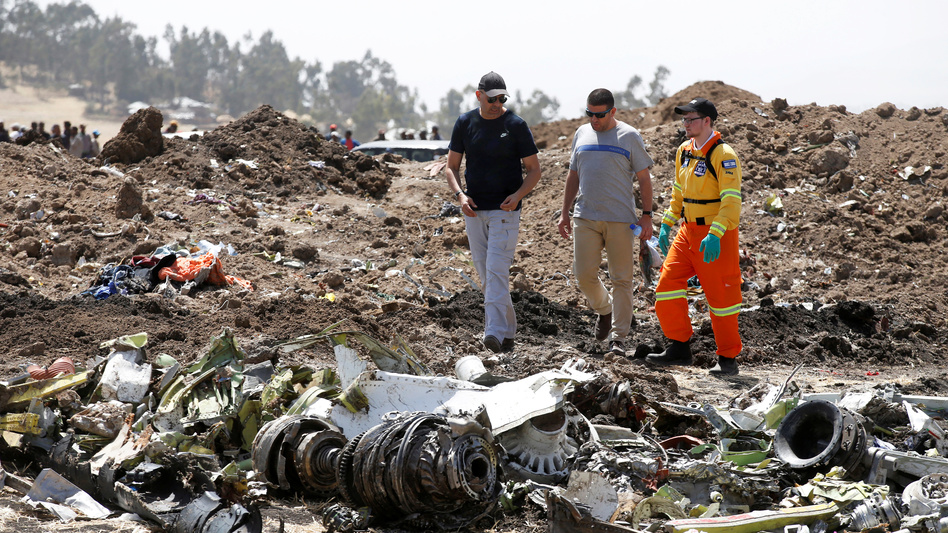Shattering Myths about Business and
Society
By Phil Mattera for the Dirt Diggers Digest
 Those who believe that corporate
executives are virtuous, government regulators are overreaching, and that we
live in a meritocracy have been cringing every time they listened to a newscast
in recent days.
Those who believe that corporate
executives are virtuous, government regulators are overreaching, and that we
live in a meritocracy have been cringing every time they listened to a newscast
in recent days. That’s because two major stories have been shattering myths about the way things work in the U.S. business world and the broader society.
The controversy over whether
Boeing’s 737 Max aircraft should be grounded in the wake of a deadly crash in
Ethiopia revealed the true nature of business regulation in the United States.
Contrary to the image, depicted ad
nauseum by corporate apologists, of bureaucrats crippling companies with
unnecessary and arbitrary rules, we saw in the Federal Aviation Administration
an agency that is essentially held captive by airlines and aircraft
manufacturers.
It was only after the rest of the
world ignored assurances from Boeing and took the common-sense step of
grounding the planes that the FAA finally acted.
The agency, its parent Department of
Transportation and the Trump Administration had to be shamed into fulfilling
their responsibility of protecting the public.
It remains to be seen whether the
Trump Administration will temper its anti-regulatory rhetoric after this
incident in which it was clear that the country needed more rather than less
oversight.
Unfortunately, the problem goes
beyond rhetoric.
Since taking office, Trump has made it a crusade to dismantle much of the deregulatory system. Left to his own devices, Trump would continue on this path. His new budget proposes massive cuts in the budgets of regulatory agencies, including 31 percent at the EPA.
That budget was dead on arrival in
the Democratic-controlled House, but the administration is undermining agencies
by rolling back enforcement activity.
Public Citizen has been documenting
this ploy in a series of reports drawing on data from Violation
Tracker.
Its latest study shows a 37 percent drop in
enforcement actions by the Consumer Financial Protection Bureau, the Federal Trade
Commission and the Consumer Product Safety Commission during Trump’s first two
years, compared to the final two years of the Obama era.
The other big myth-busting story is
the admissions scandal at elite universities. The revelation that wealthy parents
have been paying large sums to a fixer who bribed coaches and used other
fraudulent means to get their kids into the Ivy League should cause all critics
of affirmative action to hang their heads in shame.
It speaks volumes that one of the
parents arrested in the case is William McGlashan, founder of The Rise Fund, an
ethical investing vehicle managed by the private equity firm TPG Capital.
Working with the likes of Bono and philanthropist Pierre Omidyar, the fund says it is “committed to achieving social and environmental impact alongside competitive financial returns.”
Working with the likes of Bono and philanthropist Pierre Omidyar, the fund says it is “committed to achieving social and environmental impact alongside competitive financial returns.”
Defenders of the fund will attempt
to separate its mission from McGlashan’s personal issues. Yet the scandal helps
puncture the image of moral superiority projected by those who claim they can
do good and get richer at the same time.
It gives more ammunition to those
who suspect that ethical investing may be little more than a way to ease the
conscience of the wealthy with more than their share of misdeeds.
Undoubtedly, protectors of the
conventional wisdom are seeking ways to restore support for the notions that
regulation is bad and that the rich are good people who earned everything they
have.
Yet for now, let’s enjoy these
moments of clarity.